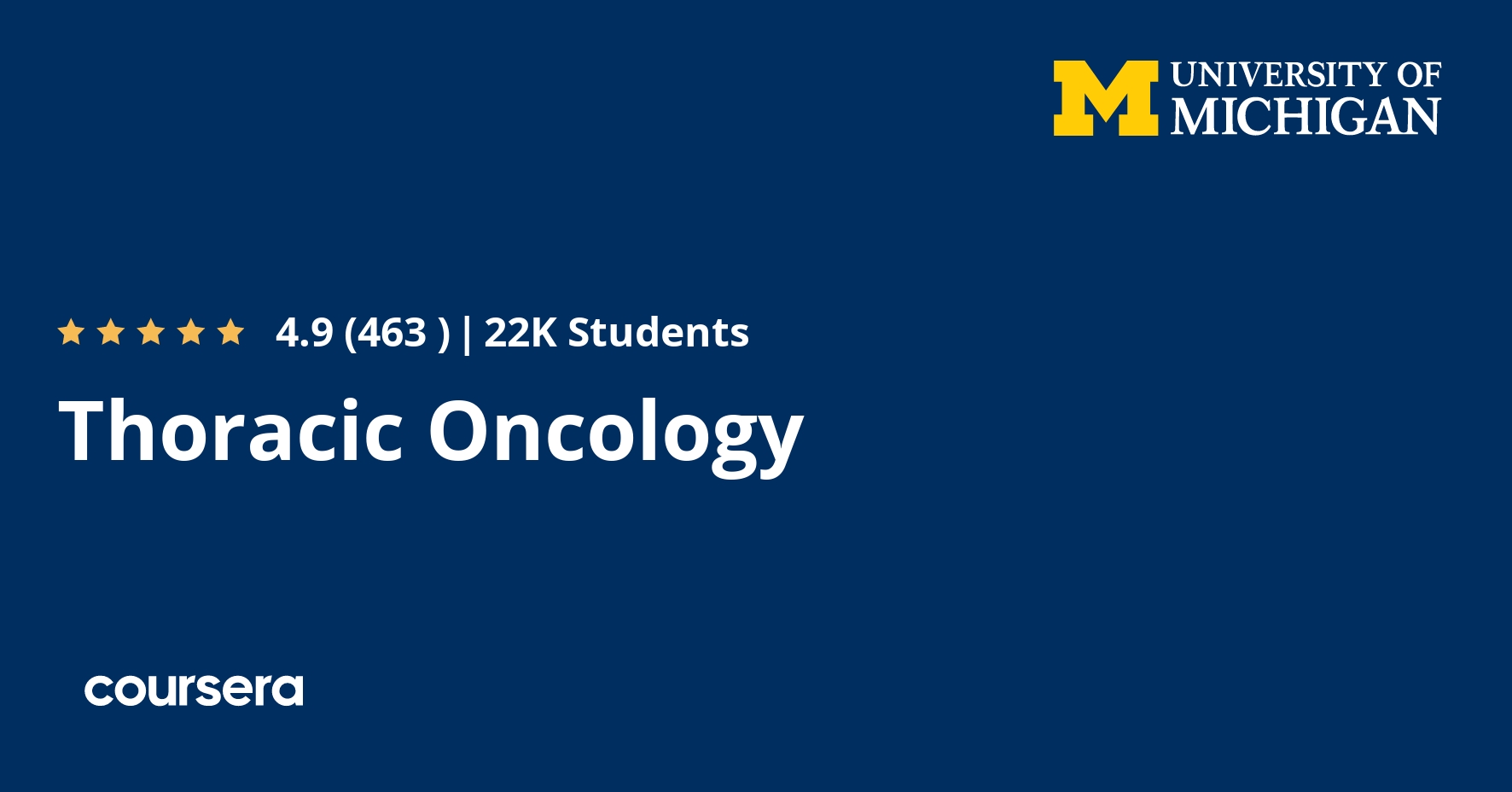Description
Thoracic malignancies are major, global health problems. Lung cancer is the most common cancer and cause of cancer death in the world, with more than 1.5 million deaths per year. More Americans will die from lung cancer each year (approximately 159,480) than from colon, breast, pancreatic, and prostate cancer combined (approximately 158,630), the next most common causes of cancer death. Esophageal cancer is the 6th most common cause of cancer deaths worldwide, and the 4th most common cause in developing nations.
This course will provide a comprehensive, multidisciplinary introduction to state of the art approaches in the care of patients with thoracic malignancies, including various types of lung cancers and esophageal cancers. Didactic material will cover epidemiology, screening and diagnosis, staging, imaging, radiation therapy, systemic therapy, surgery, psychiatry, and patient support topics.
This is an on-demand course with integrated learning units that are focused on specific topics. Each unit contains several video lectures with interactive questions and is followed by a short quiz.
Prerequisites: None required although basic medical training in some field related to thoracic oncology would be helpful.
What you will learn
Lung Cancer Overview
After reviewing this unit, the learner will understand basic principles regarding:
Non-Small Cell Lung Cancer: Differential Diagnosis and Diagnostic Work-up
After reviewing this unit, the learner will understand basic principles regarding:
Non-Small Cell Lung Cancer: Staging
After reviewing this unit, the learner will understand basic principles regarding:
Non-Small Cell Lung Cancer and Tracheal Cancer: Therapeutics
After reviewing this unit, the learner will understand basic principles regarding:





